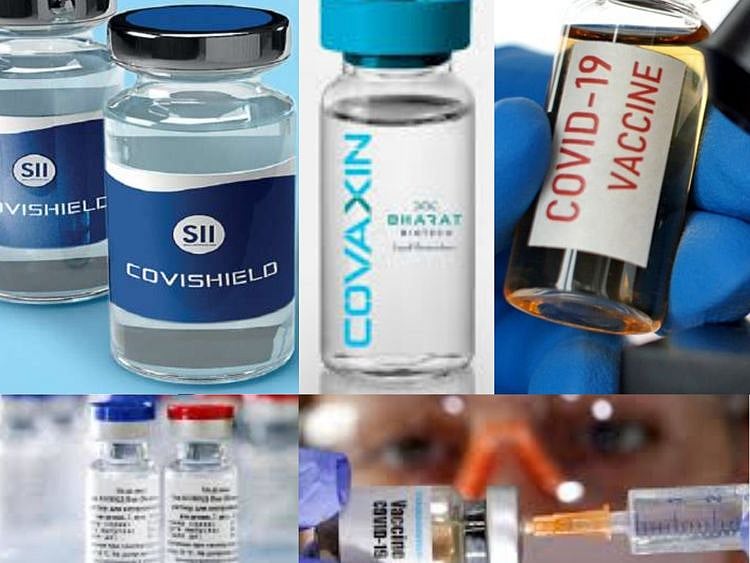COVID-19: There are more vaccines in the making
Scientists are hard at work to roll out more shots against coronavirus

There's a whole new batch of vaccines being developed against COVID. We counted at least 32, with more in the pipeline. These vaccines go through rigorous approval process, to ensure they are both safe and effective. The authorised COVID-19 shots around the world are all designed to stimulate your immune system to produce virus-fighting antibodies.
Which COVID-19 vaccines had been approved so far?
We counted at least 10 vaccines approved in different jurisdictions.
These are being used as vaccines for COVID-19 and are limited to specific populations, according to the World Health Organisation (WHO). The definition of “approval” or “authorisation” differs from one country to another.
How many more vaccines are in the pipeline?
The WHO list shows there are at least 32 more in advanced stages of clinical trials. The New York Times vaccine tracker lists 31 vaccines currently in large-scale efficacy tests, 37 vaccines in expanded safety trials and 51 vaccines in test-and-dosage stages.
WHO list of upcoming vaccines:
Vaccine approval trackers:
In addition to the WHO, there are at least two other ”vaccine trackers” keeping tabs of approvals. One is the Regulatory Affairs Society (RAPS), whose website shows 20 vaccines that had been “authorised/approved”. The New York Times’ “Vaccine Tracker”, meanwhile, counts 8 approved vaccines in “full use”, 8 vaccines in “early or limited use”.
Also Read
Sinopharm COVID-19 vaccines: What the latest study showsVaccinating the world against COVID-19: How many shots would it really take?Can you mix and match vaccines?
There are trials being conduced on mixing and matching COVID-19 vaccines. The way vaccines work varies, according to Dr. Kate O’Brien, director of the World Health Organisation’s vaccine unit. “Based on the basic principles of how vaccines work, we do think that the mix-and-match regimens are going to work,” she said.
Data still need to be collected to be sure. Experts say mixing and matching different two-dose COVID-19 vaccines is "likely safe and effective". There's limited data which suggest that an AstraZeneca shot followed by the Pfizer shot is safe and effective. The combination also appears to come with a slightly higher likelihood of temporary side effects like aches and chills.
Scientists at Oxford University in the UK are testing combinations of the two-dose COVID-19 vaccines — made by AstraZeneca, Moderna, Novavax and Pfizer-BioNTech. Smaller trials are also ongoing in Spain and Germany.
“We really just need to get the evidence in each of these (vaccine) combinations,” O’Brien said. Lawrence Young, a virologist at the University of Warwick in the UK, explained this may be because mixing and matching different types of vaccines can often produce a stronger immune response, said
In some places, health officials already suggest mixing in select circumstances. Saudi Arabia's Public Health Authority (Weqaya) authorised the use of two different COVID-19 vaccines for the first and second doses. following approval from the Saudi National Scientific Committee for Infectious Diseases.
After the AstraZeneca vaccine was linked to extremely rare blood clots, many European countries including Germany, France and Spain recommended people who got it as a first dose get a Pfizer or Moderna shot as a second dose instead.
Which COVID-19 vaccines are approved in the UAE?
How are new vaccines approved?
No vaccine gets into a country without some authorization by the national regulatory authority. Each country has a national regulatory authority, which may be guided by different regulations. The vast majority of them, however, follow internationally-agreed parameters, according to Dr Mariangela Simao, Assistant Director-General for Drug Access, Vaccines and Pharmaceuticals at WHO.
After it comes into the country, it's also monitored for any potential side effects — anything that relates to additional information that didn't come through clinical trials. So by the time it's authorised the country level, a vaccine has gone through a lot of scrutiny.
Does the WHO also have its own approval process?
Yes. It works alongside with national approval processes. In the case of the COVID vaccines, WHO has issued what is known as an “expression of interest” for an emergence-use listing. This is a prelude to a pre-qualification of vaccines.
Why is the WHO approval important?
There are a number of ways of looking at the importance of this process. One, there are many national regulatory authorities with their own advanced capabilities to do their own assessments. However, many countries don't have the technical capacity to do the full assessment.
Moreover, there are international procurements — traditionally, the UNICEF buys vaccines for the world and PAHO buys for the Americas — they rely on WHO’s pre-qualification program.
How fast is this WHO assessment process?
What does this mean for countries and vaccine makers?
Reliance on WHO’s process is very important for many countries in the world, as safety and efficacy will be guaranteed by the process that the WHO have put in place, according to the WHO official.
Sign up for the Daily Briefing
Get the latest news and updates straight to your inbox
Network Links
GN StoreDownload our app
© Al Nisr Publishing LLC 2026. All rights reserved.